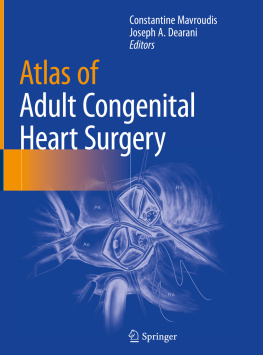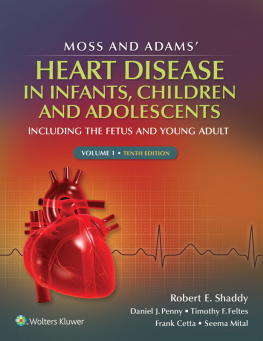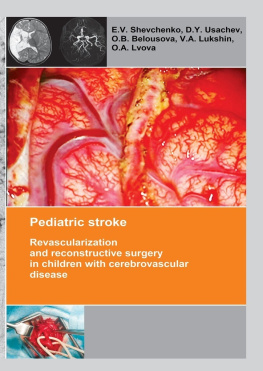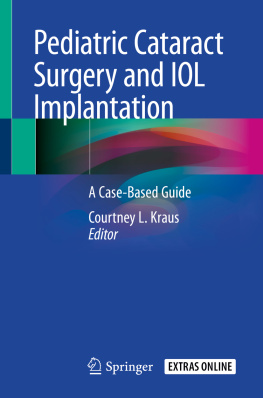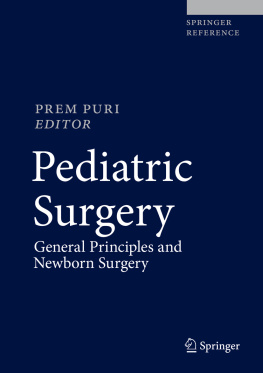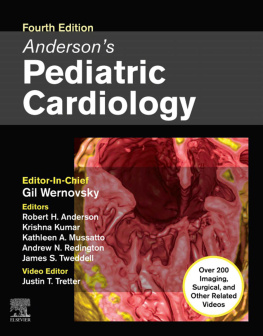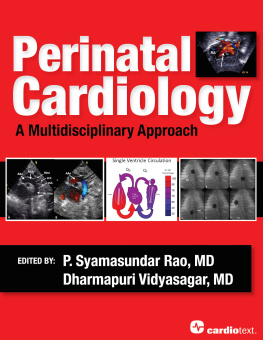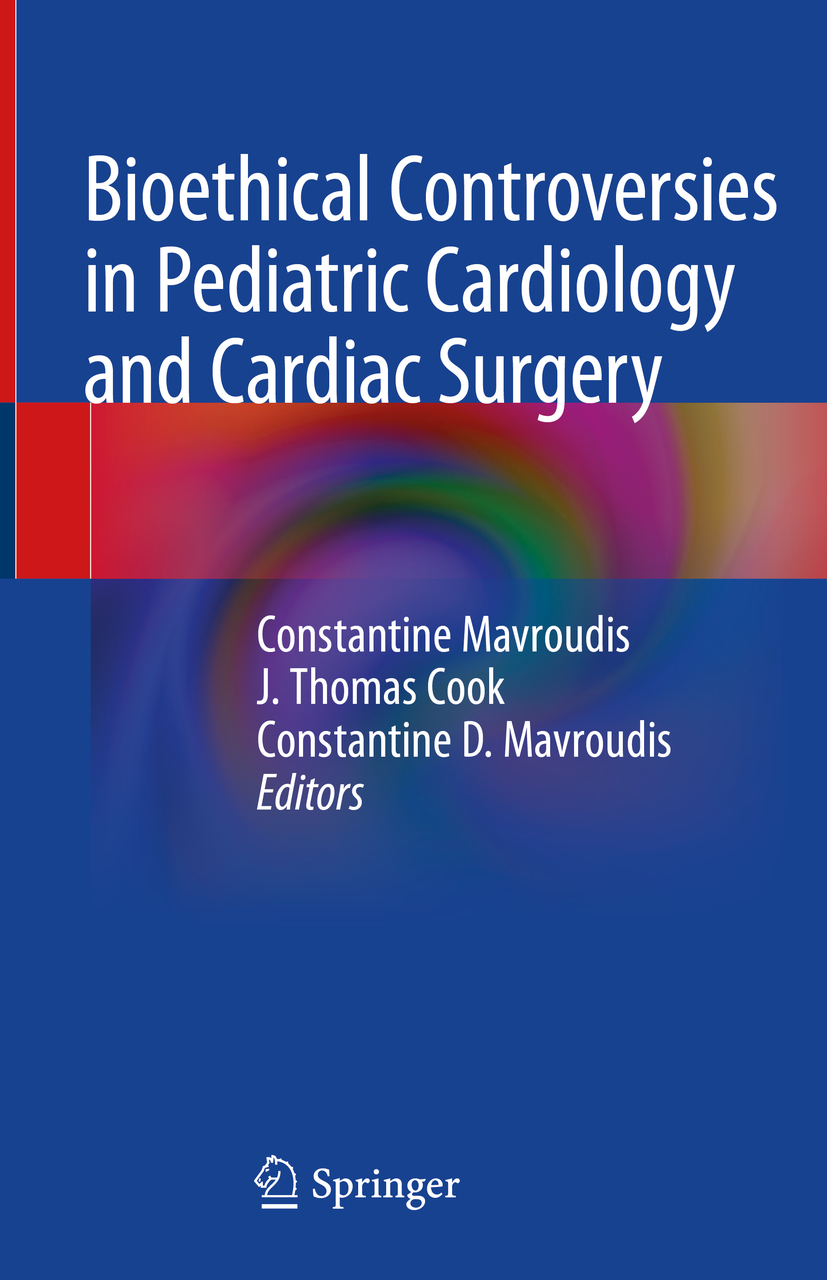Editors
Constantine Mavroudis
Johns Hopkins All Childrens Hospital, Johns Hopkins University School of Medicine, St. Petersburg, FL, USA
J. Thomas Cook
Rollins College, Winter Park, FL, USA
Constantine D. Mavroudis
University of Pennsylvania, Philadelphia, PA, USA
ISBN 978-3-030-35659-0 e-ISBN 978-3-030-35660-6
https://doi.org/10.1007/978-3-030-35660-6
Springer Nature Switzerland AG 2020
This work is subject to copyright. All rights are reserved by the Publisher, whether the whole or part of the material is concerned, specifically the rights of translation, reprinting, reuse of illustrations, recitation, broadcasting, reproduction on microfilms or in any other physical way, and transmission or information storage and retrieval, electronic adaptation, computer software, or by similar or dissimilar methodology now known or hereafter developed.
The use of general descriptive names, registered names, trademarks, service marks, etc. in this publication does not imply, even in the absence of a specific statement, that such names are exempt from the relevant protective laws and regulations and therefore free for general use.
The publisher, the authors, and the editors are safe to assume that the advice and information in this book are believed to be true and accurate at the date of publication. Neither the publisher nor the authors or the editors give a warranty, expressed or implied, with respect to the material contained herein or for any errors or omissions that may have been made. The publisher remains neutral with regard to jurisdictional claims in published maps and institutional affiliations.
This Springer imprint is published by the registered company Springer Nature Switzerland AG
The registered company address is: Gewerbestrasse 11, 6330 Cham, Switzerland
Preface to the First Edition
Bioethical controversies loom large in the field of congenital heart disease, which has emerged as a resource-consuming specialty that has major effects on the lives of patients and their families. While virtually all congenital heart defects can be surgically treated in some manner, the burdens imposed by short- and long-term survival have heightened the relevance and importance of informed consent, shared decision-making, public reporting, and clinical transparency.
The principles that govern ethical behavior in medical practice are beneficence, non-maleficence, justice, and autonomy which are grounded on the ideas that physicians are duty bound to do good, avoid harm, display fairness, and recognize that patients are free to make medical decisions for themselves. Neonates, infants, and children, however, are dependent on their parents to make decisions for them in the childs best interests. To make these issues more problematic, fetal diagnoses of complex heart disease present parents with daunting options that include consideration of womens rights to autonomy and bodily integrity, maternal-fetal conflicts, the potential burdens of long-term care associated with pain and suffering, and the possibility of postnatal comfort care rather than attempts at surgical palliation or cure. These circumstances are considered in the context of enormous advances in congenital heart procedures that, in many cases, are curative and clearly indicated.
The origin of this collection of ideas and inquiries took its roots from the multiple manuscripts that were published by the editors and contributors over a time period that witnessed significant advances in procedural techniques, changes in political social norms, and exposure of the equipoise that surrounds guidelines for parental interactions. Administrative, social, governmental, and media oversight led to increased awareness of clinical outcomes but also brought to the fore unintended consequences that shook the foundation of health care delivery for patients with congenital heart disease. In the near future, changes that might result in a universal one-payer system will challenge and refocus the ethical issues that are discussed herein and will likely signal another edition of this text.
The chapters in this book approach congenital heart disease through the lens of ethical principles. The authors encompass the breadth of contemporary medical experience and thought from surgical residents, young faculty members, philosophy faculty, and widely published, seasoned contributors. Each has an important perspective to consider. The chapters are not arranged by any organizing principle; rather they are discussions of the complex ethical issues that have formed the raison detre of this collection.
The reader will find the contents of this book to be interesting, thoughtful, controversial, and poignant. Answers are not provided; rather controversy is highlighted.
Constantine Mavroudis
St. Petersburg, FL
Contents
J. Thomas Cook
J. Thomas Cook , Constantine Mavroudis and Constantine D. Mavroudis
Constantine Mavroudis and J. Thomas Cook
Tessa London , Robert-Marlo F. Bautista Jr , Avinash S. Bhakta , Vanessa Bazan and Joseph B. Zwischenberger
Constantine Mavroudis and Constantine D. Mavroudis
Rupali Gandhi and Angira Patel
Constantine Mavroudis and Allison Siegel
Constantine Mavroudis and Constantine D. Mavroudis
Constantine D. Mavroudis , Catherine W. Lancaster and Constantine Mavroudis
J. Thomas Cook
Constantine D. Mavroudis
David Nykanen
Constantine Mavroudis , Angira Patel and Rupali Gandhi
Angira Patel , Rupali Gandhi and Constantine Mavroudis
Eric Smaw
Samer A. M. Nashef
Sarah J. Wilkens , Jeffrey G. Gossett and Angira Patel
Eric Smaw
Ashraf S. Harahsheh and Robert Sade
Vanessa M. Bazan , Carl L. Backer and Joseph B. Zwischenberger


